.

Lima Cemetery, Peru: photo by Marcelo Montecino, 13 March 2005

#Venezuela President Maduro announced the removal of five zeroes from the country's currency -- two more than originally planned -- amid hyperinflation the IMF said could reach one million percent this year. #AFPphoto by @federicoparra: image via AFP Photo @AFPphoto, 26 July 2018
![Quito, Ecuador | by Marcelo Montecino]()
![Long wait in the altiplano, Bolivia, 1963 | by Marcelo Montecino]()
![]()
Assad’s victory posters crowd Damascus streets: Photo @HassanAmmar5: image via AP Images @AP_Images, 25 July 2018
![Cemetery, El Alto, Bolivia | by Marcelo Montecino]()
![]()
Hitchhiking raccoons? Two raccoons spotted by police officers peek from behind a vehicle tire at a motel parking lot in Rye, N.H. The police officers relocated the animals. | @ryepolice via AP: image via AP Images @ AP_Images, 25 July 2018
![]()
Heart of Yosemite to close as crews battle raging wildfire: image via AP Images @ AP_Images, 25 July 2018
![]()
![]()
Jesus, we ask you to watch over our beautiful city tonight and perform a miracle like only you can do. #carrfire #PrayForRedding #Redding #California: image via Sean Feucht @seanfeucht, 26 July 2018
![]()
![]()
#El Salvador Knitting and painting for El Salvador's imprisoned ex-gang members Photo by Oscar Rivera #AFP: image via AFP Photo @AFPphoto, 26 July 2018
![]()
#El Salvador Knitting and painting for El Salvador's imprisoned ex-gang members Photo by Oscar Rivera #AFP: image via AFP Photo @AFPphoto, 26 July 2018
![]()
![]()
![Macchu Picchu, Peru | by Marcelo Montecino]()
![]()
#Chile 90 people have settled days ago demanding social housing, at a football field in Santiago. #AFPphoto by #Claudiocrafoto: image via AFP Photo @AFPphoto, 26 July 2018
![]()
#Chile 90 people have settled days ago demanding social housing, at a football field in Santiago. #AFPphoto by #Claudiocrafoto: image via AFP Photo @AFPphoto, 26 July 2018
![]()
#Chile 90 people have settled days ago demanding social housing, at a football field in Santiago. #AFPphoto by #Claudiocrafoto: image via AFP Photo @AFPphoto, 26 July 2018
![]()
#Chile 90 people have settled days ago demanding social housing, at a football field in Santiago. #AFPphoto by #Claudiocrafoto: image via AFP Photo @AFPphoto, 26 July 2018
![Soccer, La Paz, Bolivia | by Marcelo Montecino]()
Soccer, La Paz, Bolivia: photo by Marcelo Montecino, 30 January 2005

Quito, Ecuador: photo by Marcelo Montecino, 4 September 2010

Long wait in the altiplano, Bolivia, 1963: photo by Marcelo Montecino, 6 September 2014
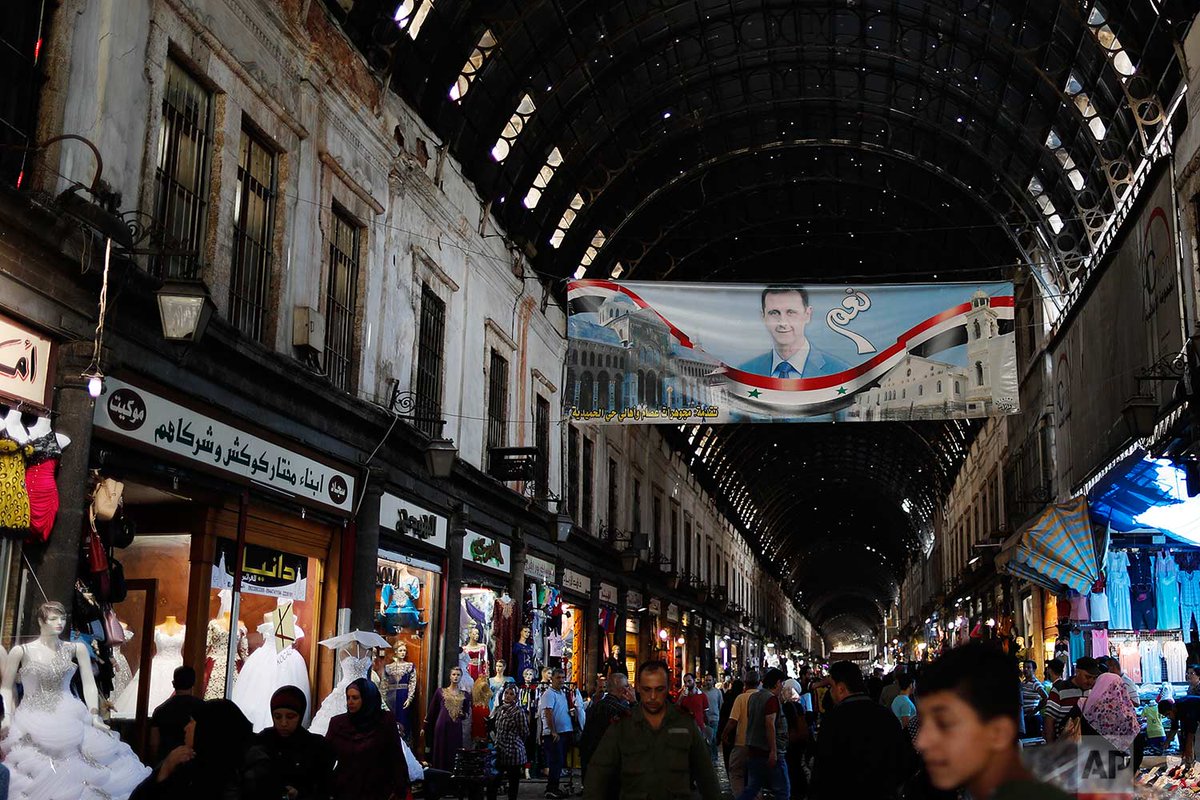
Assad’s victory posters crowd Damascus streets: Photo @HassanAmmar5: image via AP Images @AP_Images, 25 July 2018

Cemetery, El Alto, Bolivia: photo by Marcelo Montecino, 30 September 2013

Hitchhiking raccoons? Two raccoons spotted by police officers peek from behind a vehicle tire at a motel parking lot in Rye, N.H. The police officers relocated the animals. | @ryepolice via AP: image via AP Images @ AP_Images, 25 July 2018
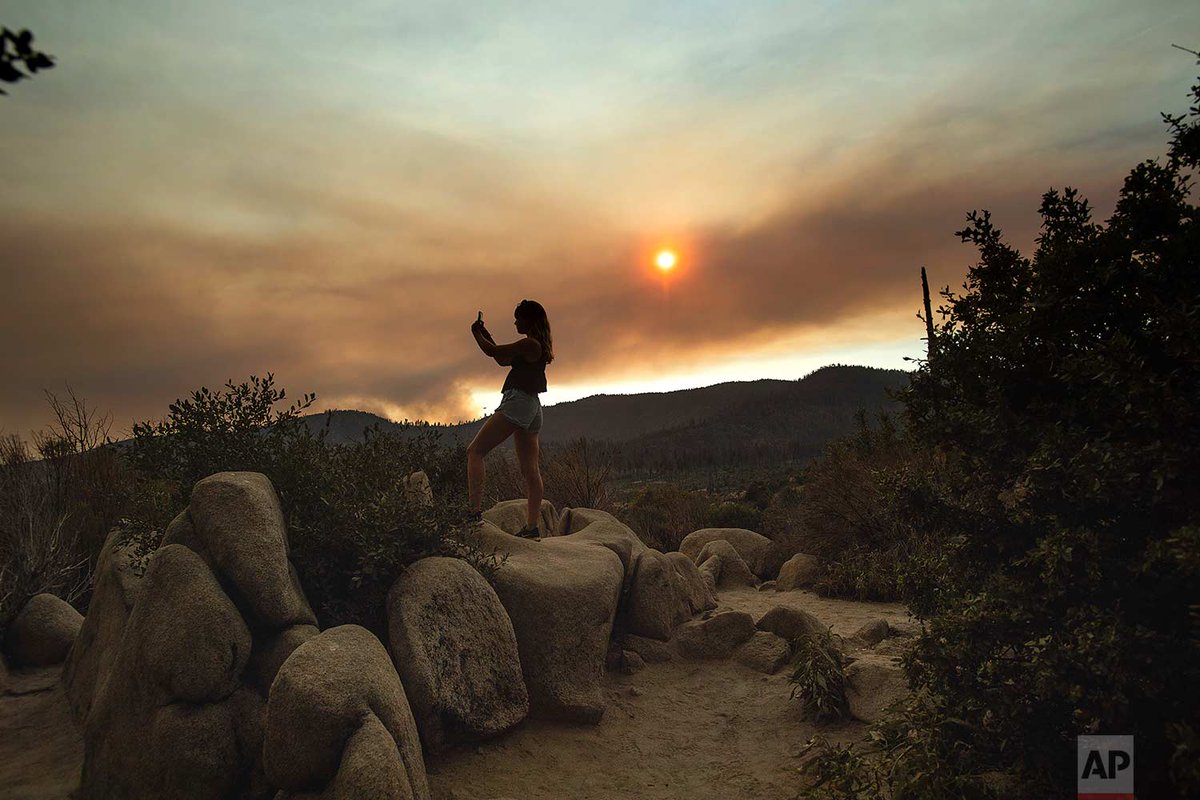
Heart of Yosemite to close as crews battle raging wildfire: image via AP Images @ AP_Images, 25 July 2018

Just evaced. We always know the threat of fire here. But never in my mind have I ever thought half our city or more could burn. Up. I am in utter shock right now. #CarrFire #Redding #CaliforniaWildfires: image via Christina Candelaria @CRC1082, 27 July 2018
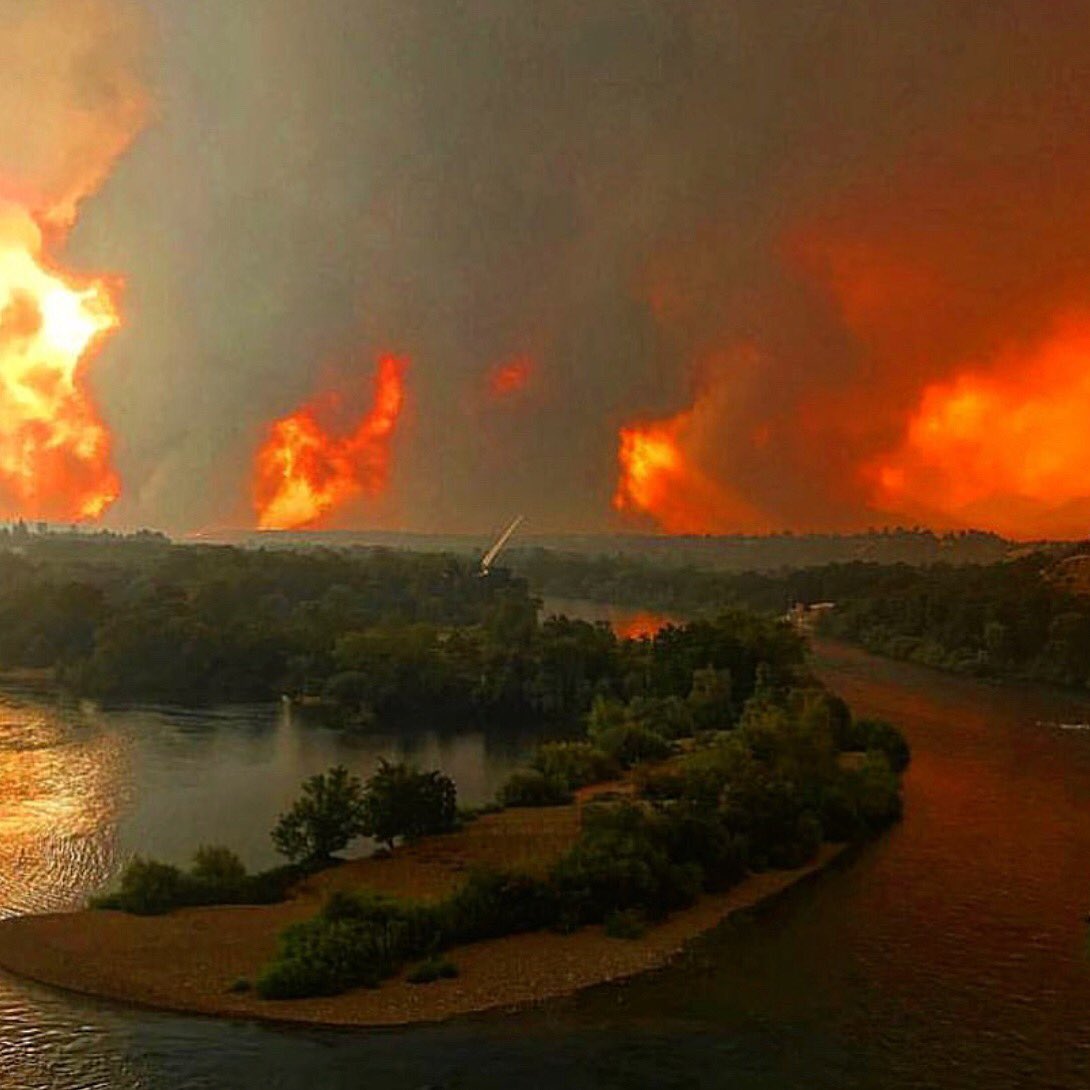
Jesus, we ask you to watch over our beautiful city tonight and perform a miracle like only you can do. #carrfire #PrayForRedding #Redding #California: image via Sean Feucht @seanfeucht, 26 July 2018
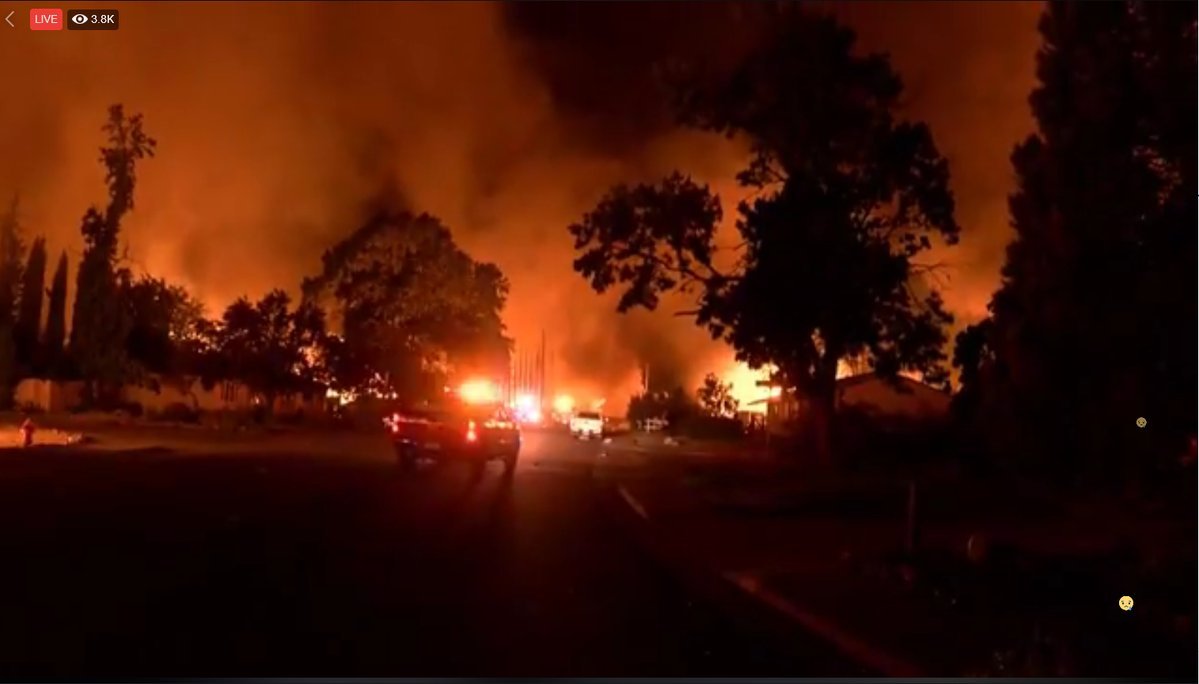
If you live in NW #Redding GET OUT NOW! Run, walk just get out, streets are bottlenecked and clogged do not wait! #CarrFire: image via Jane Brewer @brewer1_jane, 26 July 2018
![]()
#Laos Floods from Laos dam collapse force evacuations in Cambodia #AFP Photo Nhac Nguyen: image via AFP Photo @AFPphoto, 26 July 2018
![]()
#Laos Floods from Laos dam collapse force evacuations in Cambodia #AFP Photo @ye_aung_thu: image via AFP Photo @AFPphoto, 26 July 2018
![]()
#Laos Floods from Laos dam collapse force evacuations in Cambodia #AFP Photo Nhac Nguyen: image via AFP Photo @AFPphoto, 26 July 2018
![]()
#Laos Floods from Laos dam collapse force evacuations in Cambodia #AFP Photo Nhac Nguyen @ye_aung_thu: image via AFP Photo @AFPphoto, 26 July 2018
![]()
#Mexico Aerial view of houses and structures sitting right next to the Mexico-US border fence at El Nido de las Aguilas in eastern Tijuana. Photo @GmmoAriasC: image via AFP Photo @AFPphoto, 27 July 2018
![]()
#Nicaragua People take part in a vigil to commemorate 100 days of protests against the government of Nicaragua's president Daniel Ortega, in Managua.#AFPphoto: image via AFP Photo @AFPphoto, 27 July 2018
![]()
#Honduras. Riot police clash with students of the National Autonomous University of Honduras (UNAH), as they protest in demand of a reduction in the price of fuel in Tegucigalpa. #AFPphoto by Orlando Sierra: image via AFP Photo @AFPphoto, 27 July 2018
![Morgue, San Salvador, El Salvador, 1982, 422776622mm-29m | by Marcelo Montecino]()
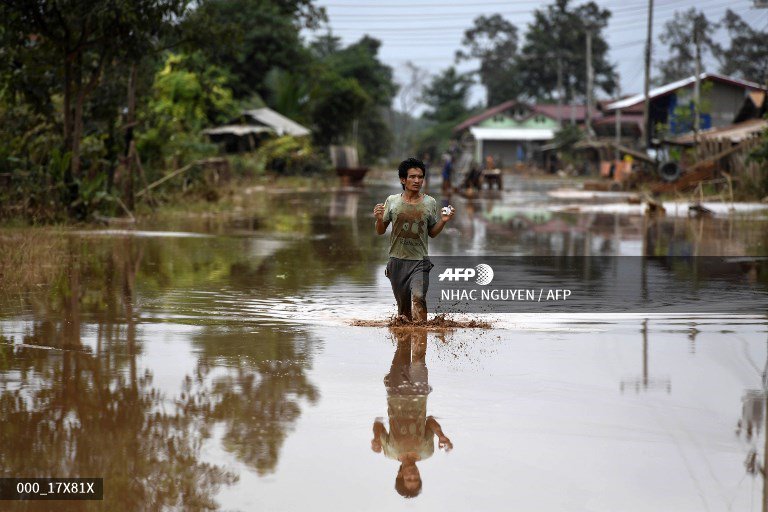
#Laos Floods from Laos dam collapse force evacuations in Cambodia #AFP Photo Nhac Nguyen: image via AFP Photo @AFPphoto, 26 July 2018

#Laos Floods from Laos dam collapse force evacuations in Cambodia #AFP Photo @ye_aung_thu: image via AFP Photo @AFPphoto, 26 July 2018

#Laos Floods from Laos dam collapse force evacuations in Cambodia #AFP Photo Nhac Nguyen: image via AFP Photo @AFPphoto, 26 July 2018

#Laos Floods from Laos dam collapse force evacuations in Cambodia #AFP Photo Nhac Nguyen @ye_aung_thu: image via AFP Photo @AFPphoto, 26 July 2018
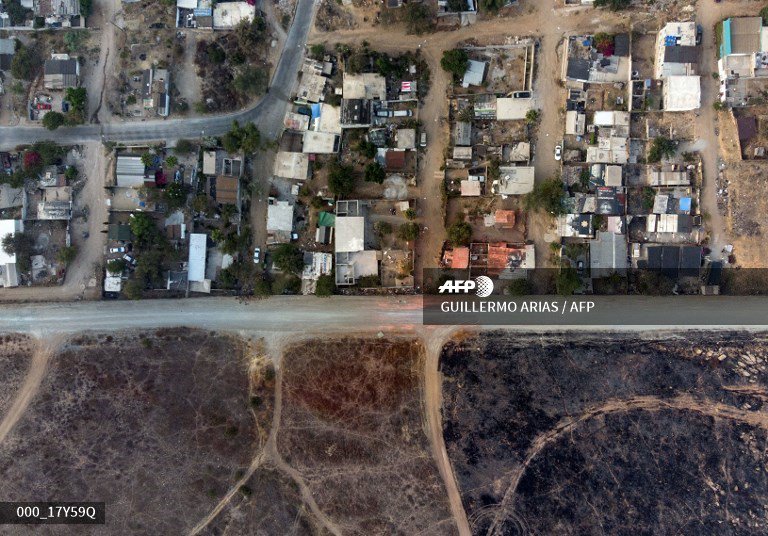
#Mexico Aerial view of houses and structures sitting right next to the Mexico-US border fence at El Nido de las Aguilas in eastern Tijuana. Photo @GmmoAriasC: image via AFP Photo @AFPphoto, 27 July 2018

#Nicaragua People take part in a vigil to commemorate 100 days of protests against the government of Nicaragua's president Daniel Ortega, in Managua.#AFPphoto: image via AFP Photo @AFPphoto, 27 July 2018

#Honduras. Riot police clash with students of the National Autonomous University of Honduras (UNAH), as they protest in demand of a reduction in the price of fuel in Tegucigalpa. #AFPphoto by Orlando Sierra: image via AFP Photo @AFPphoto, 27 July 2018


#El Salvador Knitting and painting for El Salvador's imprisoned ex-gang members Photo by Oscar Rivera #AFP: image via AFP Photo @AFPphoto, 26 July 2018
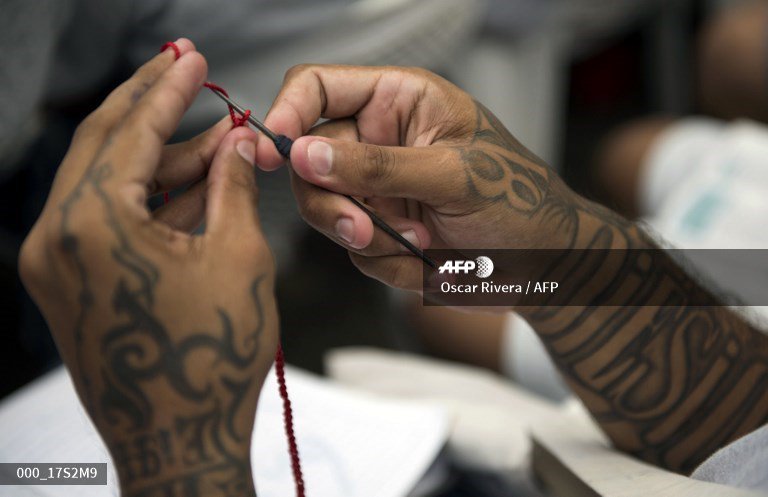
#El Salvador Knitting and painting for El Salvador's imprisoned ex-gang members Photo by Oscar Rivera #AFP: image via AFP Photo @AFPphoto, 26 July 2018

#El Salvador Knitting and painting for El Salvador's imprisoned ex-gang members Photo by Oscar Rivera #AFP: image via AFP Photo @AFPphoto, 26 July 2018
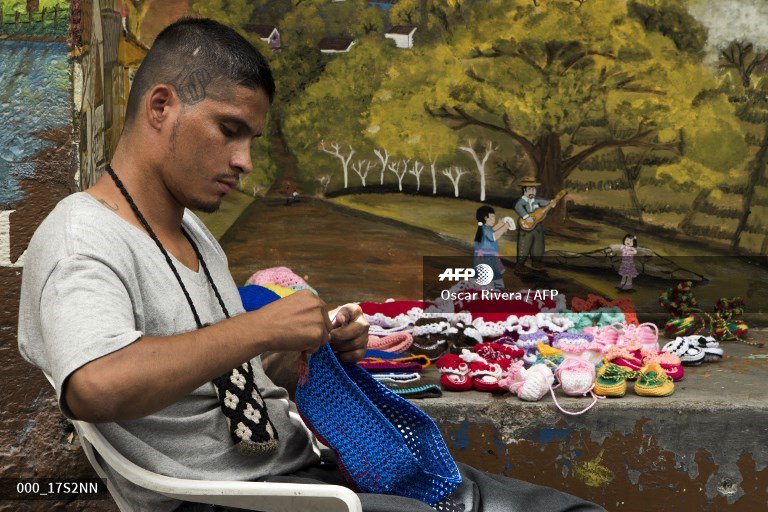
#El Salvador Knitting and painting for El Salvador's imprisoned ex-gang members Photo by Oscar Rivera #AFP: image via AFP Photo @AFPphoto, 26 July 2018

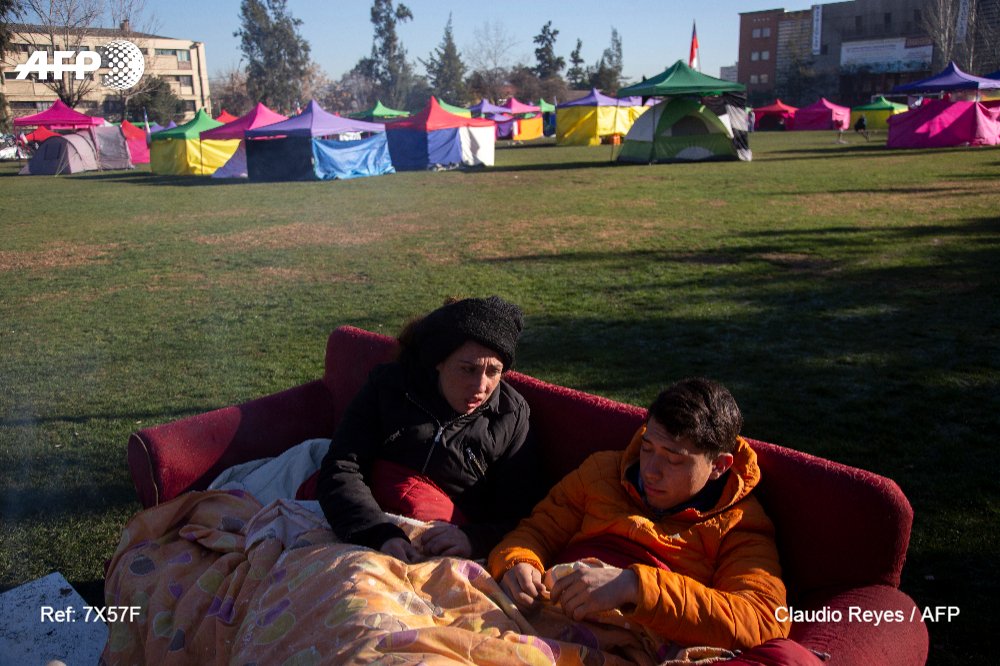
#Chile 90 people have settled days ago demanding social housing, at a football field in Santiago. #AFPphoto by #Claudiocrafoto: image via AFP Photo @AFPphoto, 26 July 2018

#Chile 90 people have settled days ago demanding social housing, at a football field in Santiago. #AFPphoto by #Claudiocrafoto: image via AFP Photo @AFPphoto, 26 July 2018
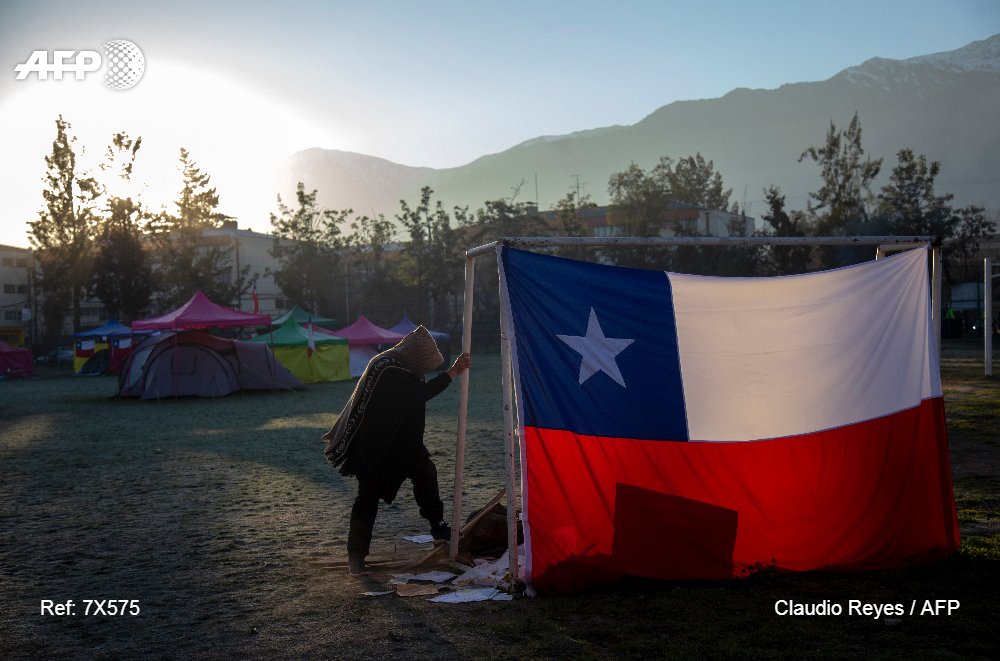
#Chile 90 people have settled days ago demanding social housing, at a football field in Santiago. #AFPphoto by #Claudiocrafoto: image via AFP Photo @AFPphoto, 26 July 2018

#Chile 90 people have settled days ago demanding social housing, at a football field in Santiago. #AFPphoto by #Claudiocrafoto: image via AFP Photo @AFPphoto, 26 July 2018

Soccer, La Paz, Bolivia: photo by Marcelo Montecino, 30 January 2005

Facebook lost 3 million European users after the Cambridge Analytica data breach.: photo by Anadolu Agency/Getty Images, 26 July 2018
Over $119bn wiped off Facebook's market cap after growth shock:Rupert Neale, Wealth correspondent, The Guardian, 26 July 2018(extract)
More than $119bn (£90.8bn) has been wiped off Facebook’s market value, which includes a $17bn hit to the fortune of its founder, Mark Zuckerberg, after the company told investors that user growth had slowed in the wake of the Cambridge Analytica scandal.
Facebook’s shares plunged 19% on Thursday in New York, a day after the Silicon Valley company revealed that 3 million users in Europe had abandoned the social network since the Observer revealed the Cambridge Analytica breach of 87m Facebook profiles and the introduction of strict European Union data protection legislation.
The collapse of Facebook’s share price is the biggest ever one-day drop in a company’s market value. Shares fell to $176, valuing the company at $510bn, a drop of $119bn from a record high of nearly $630bn on Wednesday.
The previous biggest collapse came in 2000, when Intel lost $91bn in a day. The amount of money wiped off Facebook’s market value on Thursday is equivalent to nearly the whole of McDonald’s.
The single biggest loser is Zuckerberg, who owns nearly 17% of the company and whose paper fortune fell from $86.5bn to about $70bn, sending him tumbling from the third-richest person on the planet to the sixth.
*
At the start of the call, before the shares started to tank in after-market trading, Zuckerberg had described the results as “a solid quarter” and talked about the company’s “amazing success”.
Some investors have called for Zuckerberg to be removed as the social network’s chairman due to his “mishandling” of the Cambridge Analytica crisis.
Trillium Asset Management, a small activist investor that has previously questioned Zuckerberg’s role as both chairman and chief executive, said allowing Zuckerberg to have so much power had “contributed to Facebook missing, or mishandling, a number of severe controversies, increasing risk exposure and costs to shareholders”.
“A CEO who also serves as chair can exert excessive influence on the board and its agenda, weakening the board’s oversight of management,” Trillium said. “Having an independent chair helps the board carry out its primary duty – to monitor the management of the company on behalf of its shareholders.”
However, the proposal was unlikely to succeed as Zuckerberg holds Class B shares that give him the majority of the voting power in the company’s governance. Last year, 51% of independent investors voted to oust Zuckerberg as chairman.
![Macchu Pichu, Peru | by Marcelo Montecino]()
![]()
![]()
![]()
![]()
![]()
![]()
Good news, there’s more: image via Melissa Martin @DoubleEmMartin, 23 July 2018
![Peruvian Andes | by Marcelo Montecino]()
Peruvian Andes: photo by Marcelo Montecino, 14 March 2005
On Change Dot Org and the Petition Scam: Clay Johnson, Information Diet
I’ve written a whole lot about how petitions aren’t very effective much, I think, to the offense of some of my colleagues in Washington. My post last year, originally titled “online petitions are a sham” drew quite the conversation. One thing I didn’t point out though was why the tactic keeps getting used, and why people are so attached to a practice that, more often than not, gets beaten by a few good lobbyists.
The answer?
Money. Petitions are a big business. Multi-million dollar businesses are set up to create petitions, collect lists and raise funds. While the petition might not be the best way to actually make Congress move, they are the best way to lure an internet user into handing over their personal information, so that you can receive additional messages asking you for funds. It’s lead-gen for social change.
The Democratic Senatorial Campaign Committee, for instance, is running a laughable petition to stop citizens united. But if you think about this critically for a second, you’d understand that the DSCC is the official party committee, run by Democratic Senators, to re-elect democratic senators. If those Democratic Senators were truly against citizens united, what do they need petition signatures for in the first place? What’s the DSCC’s function? Fundraising. Petitions are big money.
And nobody’s making more money from online petitions than Change.org. I wonder how many people visiting a change.org petition know that despite its dot-org name, the organization is a for-profit lead generation business. Just take a look at their partners page, and you’ll see what they do:
Here’s the thing: I don’t have a problem with this practice as long as it's transparent to the user. But in this case, I think Change.org is being deliberately deceitful through the use of the change.org name. I’d suspect that the average change.org user does not know that Change.org is a for-profit corporation, and that the corporation plans on using the contact information being provided to them to earn revenue.
Just how big is Change.org? ... they’re hiring like crazy. Change.org, Inc. is marketing itself as Change.org, with barely an allusion to being a for-profit corporation anywhere when it calls itself a “certified B corporation” on its About page. This isn’t right.
Industrialized media is a big problem. But industrialized activism might be even bigger. As change.org grows up and gets big, what happens when fiduciary responsibility comes into play? What happens when Change.org needs to continue its growth – will they run A/B tests on the headlines of petitions to sensationalize them and increase the click-through rates? What happens when they get bought? What happens when the focus is on revenue rather than on change?
That’s easy. It says right here in the privacy policy:
All of this isn’t clear to the user, and by using the .org domain and by not branding yourself at all as a for-profit corporation, the user’s expectation is different than giving their email address and contact information over to a start-up. Change.org needs to change.
Change.org: Please change your name. Change your marketing practices. Stop deceiving people into thinking you’re something that you’re not. Own up to being a for-profit. Put it on every page on the new Change.biz. Make sure every page on change.biz has a “How we make money” link on it. Use that page to be clear with people about how you make money.
By not being fully transparent about your business practices, and by using the .org domain you’re being deliberately deceitful. You’re tricking people. You and all the people that work for you know better, and can do better.
![Andes in the highlands of Bolivia | by Marcelo Montecino]()
After Europe’s top monopoly buster Margarethe Vestager fined Google more than $5bn for abusing its dominance over mobile phone technology, it’s tempting to relax about the power of big tech. Not only is there a cop watching these giants, she’s carrying a really big stick.
But this week’s firing by the New York Daily Newsof half the paper’s staff shines a different light on the matter. The reason given by the publisher – a sharp decline in revenue – is largely the result of Google abusing its monopoly over online advertising, in tandem with Facebook. Vestager’s move against Android does nothing to protect the free press in Europe or America. This means it’s time for other regulators and legislators in America and in Europe to speed the process of bringing Google to heel.
To be sure, the decision by Europe’s Directorate General for Competition (DG Comp) last Wednesday is important. The fat fine was the clearest statement yet that Google’s practices break the law. Further, the restrictions DG Comp imposed on Google’s business model will crimp its behavior in key ways. Vestager and her team deserve thanks. Given the political power of Google, their actions took courage.
But it’s vital to put the fine into perspective. In an industry that changes by the day, the case took eight years to complete. Further, it deals with just one part of a problem that is now very large and sprawling. And even after the fine Google will be left holding more than $95bn in cash. Vestager’s fighters put out the fire on the first floor, but only after the blaze had spread to the rest of the building.
Of all the social goods now in flames the one we must protect first is trustworthy journalism. In the nine years since Google bought the mobile ad company AdMob, annual ad revenue at Google and Facebook has soared, to more than $95bn and almost $40bn, respectively. During this period, ad revenue at newspapers fell around $50bn in 2005 to under $20bn today.
This means fewer reporters on the streets. The number of people working in America’s newsrooms dropped from more than 400,000 in 2001 to fewer than 185,000 today. In New York, the picture is especially bleak. The number of reporters at the Daily News is nearly 90% below 1988 levels. The New York Timescut local reporting staff by more than half over the last decade, from 90 to 40.
It’s not that citizens don’t want news. Especially since the election of Donald Trump, many new readers have bought subscriptions to national outlets like the New York Timesand Wall Street Journal. Some upstarts, like BuzzFeed, have also managed to stay ahead of the sword.
But Google and Facebook pose fundamental dangers to even the most successful outlets. Their status as essential gatekeepers to the news – some 93% of Americans get news online, with most getting it through Google and Facebook – gives these two the power to steer readers away from any newspaper, almost at will.
Nicholas Thompson, editor-in-chief of Wired, recently described the problem in stark terms. “Journalists know that the man who owns the farm has the leverage. If Facebook wanted to, it could quietly turn any number of dials that would harm a publisher – by manipulating its traffic, its ad network or its readers.”
To the extent there’s good news, it’s that we know how to fix the problem. In many respects, Google and Facebook are simply 21st-century versions of the monopoly communications networks of the past, such as Western Union telegraph in the 19thcentury and AT&T in the 20th.
In the past, Americans carefully neutralized the monopoly powers of such behemoths. They made it against the law for these corporations to discriminate for or against any sender of information. They prevented them from competing with the companies – including newspapers – who rely on them to get to market.
Such thinking remains very much alive today. The Federal Communication Commission’s “net neutrality” decision in 2015 applied non-discrimination rules to broadband and cable operators. The Microsoft case of the late 1990s aimed to prevent the conflicts of interest that come from “vertical integration”.
Thus far, regulators in Europe and the United States have entirely failed to apply such traditional antimonopoly rules to Google and Facebook. This has left them free both to strip ad revenue from trustworthy publishers and to steer readers to and from publications almost at will.
The citizens of the world’s democracies face a choice. We can allow Google and Facebook to continue to strangle half our free press to death, and turn the rest into cowed pets. Or we can demand that our governments act now to protect the journalists who protect our most fundamental liberties.
![Michael Cohen and Donald Trump]()
Michael Cohen and Donald Trump: photo by Getty Images via New York Post, 26 July 2018
President Trump’s former personal lawyer Michael Cohen is willing to testify to Special Council Robert Mueller that Trump was aware of an infamous June 2016 meeting with Russian operatives at Trump Tower at Trump Tower before it happened, a source close to Cohen told The Post on Thursday.
The source said that Cohen claims Trump knew and approved of the meeting where
Russians offered “dirt” on then-candidate Hillary Clinton — despite Trump’s repeated denials that he was aware it took place.
Cohen was present when Trump was informed by his son, Donald Trump Jr., that the offer had been made, the source said.
President Trump claimed he “didn’t know anything about the meeting” because “nobody told me” about it.
During the meeting, Trump Jr. was joined by Jared Kushner and former Trump campaign chairman Paul Manafort.
The four Russians in the room included a lawyer with Kremlin ties, a businessman who worked for an oligarch and a lobbyist.
The Trump Tower meeting was seen as evidence of the Trump campaign working along with Russians to defeat Hillary Clinton.
![]()
Facebook’s shares plunged 19% on Thursday in New York, a day after the Silicon Valley company revealed that 3 million users in Europe had abandoned the social network since the Observer revealed the Cambridge Analytica breach of 87m Facebook profiles and the introduction of strict European Union data protection legislation.
The collapse of Facebook’s share price is the biggest ever one-day drop in a company’s market value. Shares fell to $176, valuing the company at $510bn, a drop of $119bn from a record high of nearly $630bn on Wednesday.
The previous biggest collapse came in 2000, when Intel lost $91bn in a day. The amount of money wiped off Facebook’s market value on Thursday is equivalent to nearly the whole of McDonald’s.
The single biggest loser is Zuckerberg, who owns nearly 17% of the company and whose paper fortune fell from $86.5bn to about $70bn, sending him tumbling from the third-richest person on the planet to the sixth.
*
At the start of the call, before the shares started to tank in after-market trading, Zuckerberg had described the results as “a solid quarter” and talked about the company’s “amazing success”.
Some investors have called for Zuckerberg to be removed as the social network’s chairman due to his “mishandling” of the Cambridge Analytica crisis.
Trillium Asset Management, a small activist investor that has previously questioned Zuckerberg’s role as both chairman and chief executive, said allowing Zuckerberg to have so much power had “contributed to Facebook missing, or mishandling, a number of severe controversies, increasing risk exposure and costs to shareholders”.
“A CEO who also serves as chair can exert excessive influence on the board and its agenda, weakening the board’s oversight of management,” Trillium said. “Having an independent chair helps the board carry out its primary duty – to monitor the management of the company on behalf of its shareholders.”
However, the proposal was unlikely to succeed as Zuckerberg holds Class B shares that give him the majority of the voting power in the company’s governance. Last year, 51% of independent investors voted to oust Zuckerberg as chairman.

Macchu Picchu, Peru: photo by Marcelo Montecino, 31 January 2005

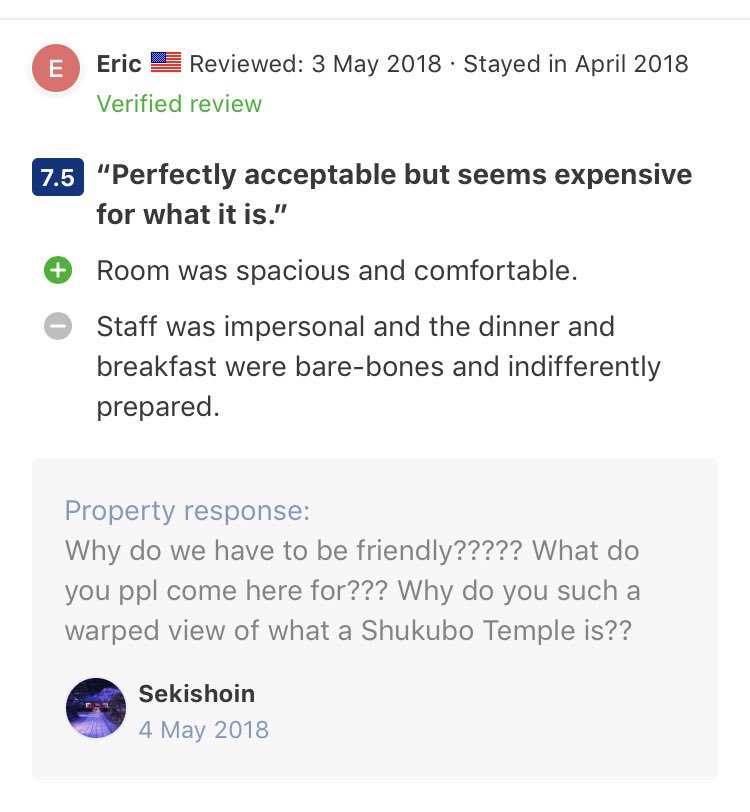



Monk at Buddhist temple lodgings on Japan’s Mt. Koya is 100% done with your tourist crap:image via Melissa Martin @DoubleEmMartin, 23 July 2018
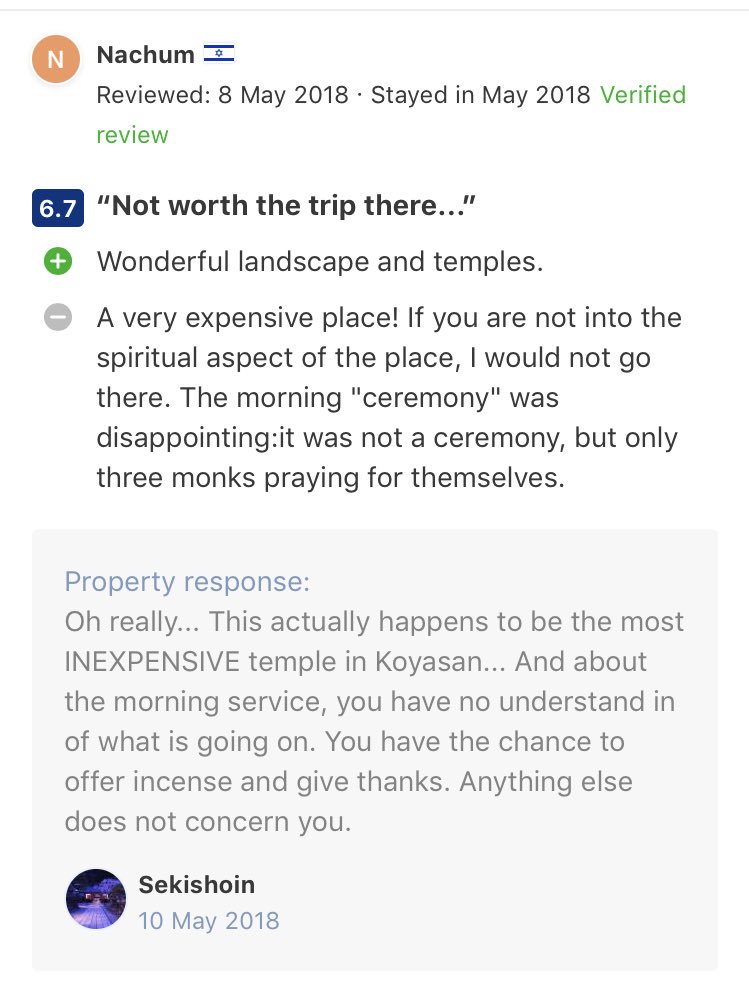
Good news, there’s more: image via Melissa Martin @DoubleEmMartin, 23 July 2018

Peruvian Andes: photo by Marcelo Montecino, 14 March 2005
A petition to rehire James Gunn has more than 250,000 supporters: Hype Daily, 24 July 2018
Filmmaker James Gunn arrives at the ninth annual Governors Awards in Los Angeles.: photo by Jordan Strauss/AP, 11 November 2017
A Change.org petition calling on Disney to rehire Guardians of the Galaxy director James Gunn has garnered more than 250,000 signatures. Disney announced it fired Gunn. Friday in connection with jokes he made on Twitter nearly a decade ago. The jokes seemed to make light of topics like pedophilia and rape.
The creator of the petition to rehire Gunn wrote in the description of the campaign, “I agree with most, including Gunn himself that the jokes were shitty and un-funny but they were still jokes, it wasn’t an opinion or a statement, it was just a bad attempt at being funny.”
![Highlands in Peru | by Marcelo Montecino]()
Highlands of Peru: photo by Marcelo Montecino, 26 July 2006
For so long, the narrative has told women and young impressionable girls that in order to be popular, have friends, to be desirable for the male gaze, and to some extent be a worthy human...that we must be thin.
The toxicity of this series, is bigger than just this one particular series. This is not an isolated case, but part of a much larger problem that I can promise you every single woman has faced in her life, sitting somewhere on the scale of valuing their worth on their bodies, to be desirable objects for the male gaze. That is exactly what this series does. It perpetuates not only the toxicity of diet culture, but the objectification of women's bodies.
This series needs to be cancelled. The damage control of releasing this series will be far worse, insidious and sinister for teenage girls, than it will be damaging for Netflix in their loss of profit.
The release is set to be the 10th of August, we still have time to stop this series from being released, and causing a devastation of self-doubt in the minds of young girls who will think that to be happy and be worthy, they need to lose weight.
This series will cause eating disorders, and perpetuate the further objectification of women's bodies. The trailer has already triggered people with eating disorders. Let's stop this, and protect further damage.
![Near Ayacucho, Peru | by Marcelo Montecino]()
Near Ayacucho, Peru: photo by Marcelo Montecino, 14 March 2005

Highlands of Peru: photo by Marcelo Montecino, 26 July 2006
Change dot org petition: Stop the Release of Netflix's Body-Shaming series 'Insatiable'
Florence given started this petition to Netflix
For so long, the narrative has told women and young impressionable girls that in order to be popular, have friends, to be desirable for the male gaze, and to some extent be a worthy human...that we must be thin.
The toxicity of this series, is bigger than just this one particular series. This is not an isolated case, but part of a much larger problem that I can promise you every single woman has faced in her life, sitting somewhere on the scale of valuing their worth on their bodies, to be desirable objects for the male gaze. That is exactly what this series does. It perpetuates not only the toxicity of diet culture, but the objectification of women's bodies.
This series needs to be cancelled. The damage control of releasing this series will be far worse, insidious and sinister for teenage girls, than it will be damaging for Netflix in their loss of profit.
The release is set to be the 10th of August, we still have time to stop this series from being released, and causing a devastation of self-doubt in the minds of young girls who will think that to be happy and be worthy, they need to lose weight.
This series will cause eating disorders, and perpetuate the further objectification of women's bodies. The trailer has already triggered people with eating disorders. Let's stop this, and protect further damage.

Near Ayacucho, Peru: photo by Marcelo Montecino, 14 March 2005
I’ve written a whole lot about how petitions aren’t very effective much, I think, to the offense of some of my colleagues in Washington. My post last year, originally titled “online petitions are a sham” drew quite the conversation. One thing I didn’t point out though was why the tactic keeps getting used, and why people are so attached to a practice that, more often than not, gets beaten by a few good lobbyists.
The answer?
Money. Petitions are a big business. Multi-million dollar businesses are set up to create petitions, collect lists and raise funds. While the petition might not be the best way to actually make Congress move, they are the best way to lure an internet user into handing over their personal information, so that you can receive additional messages asking you for funds. It’s lead-gen for social change.
The Democratic Senatorial Campaign Committee, for instance, is running a laughable petition to stop citizens united. But if you think about this critically for a second, you’d understand that the DSCC is the official party committee, run by Democratic Senators, to re-elect democratic senators. If those Democratic Senators were truly against citizens united, what do they need petition signatures for in the first place? What’s the DSCC’s function? Fundraising. Petitions are big money.
And nobody’s making more money from online petitions than Change.org. I wonder how many people visiting a change.org petition know that despite its dot-org name, the organization is a for-profit lead generation business. Just take a look at their partners page, and you’ll see what they do:
Here’s the thing: I don’t have a problem with this practice as long as it's transparent to the user. But in this case, I think Change.org is being deliberately deceitful through the use of the change.org name. I’d suspect that the average change.org user does not know that Change.org is a for-profit corporation, and that the corporation plans on using the contact information being provided to them to earn revenue.
Just how big is Change.org? ... they’re hiring like crazy. Change.org, Inc. is marketing itself as Change.org, with barely an allusion to being a for-profit corporation anywhere when it calls itself a “certified B corporation” on its About page. This isn’t right.
Industrialized media is a big problem. But industrialized activism might be even bigger. As change.org grows up and gets big, what happens when fiduciary responsibility comes into play? What happens when Change.org needs to continue its growth – will they run A/B tests on the headlines of petitions to sensationalize them and increase the click-through rates? What happens when they get bought? What happens when the focus is on revenue rather than on change?
That’s easy. It says right here in the privacy policy:
All of this isn’t clear to the user, and by using the .org domain and by not branding yourself at all as a for-profit corporation, the user’s expectation is different than giving their email address and contact information over to a start-up. Change.org needs to change.
Change.org: Please change your name. Change your marketing practices. Stop deceiving people into thinking you’re something that you’re not. Own up to being a for-profit. Put it on every page on the new Change.biz. Make sure every page on change.biz has a “How we make money” link on it. Use that page to be clear with people about how you make money.
By not being fully transparent about your business practices, and by using the .org domain you’re being deliberately deceitful. You’re tricking people. You and all the people that work for you know better, and can do better.

Andes in the highlands of Bolivia: photo by Marcelo Montecino, 23 February 2005
Google and Facebook are strangling the free press to death. Democracy is the loser: Barry Lynn,
But this week’s firing by the New York Daily Newsof half the paper’s staff shines a different light on the matter. The reason given by the publisher – a sharp decline in revenue – is largely the result of Google abusing its monopoly over online advertising, in tandem with Facebook. Vestager’s move against Android does nothing to protect the free press in Europe or America. This means it’s time for other regulators and legislators in America and in Europe to speed the process of bringing Google to heel.
To be sure, the decision by Europe’s Directorate General for Competition (DG Comp) last Wednesday is important. The fat fine was the clearest statement yet that Google’s practices break the law. Further, the restrictions DG Comp imposed on Google’s business model will crimp its behavior in key ways. Vestager and her team deserve thanks. Given the political power of Google, their actions took courage.
But it’s vital to put the fine into perspective. In an industry that changes by the day, the case took eight years to complete. Further, it deals with just one part of a problem that is now very large and sprawling. And even after the fine Google will be left holding more than $95bn in cash. Vestager’s fighters put out the fire on the first floor, but only after the blaze had spread to the rest of the building.
Of all the social goods now in flames the one we must protect first is trustworthy journalism. In the nine years since Google bought the mobile ad company AdMob, annual ad revenue at Google and Facebook has soared, to more than $95bn and almost $40bn, respectively. During this period, ad revenue at newspapers fell around $50bn in 2005 to under $20bn today.
This means fewer reporters on the streets. The number of people working in America’s newsrooms dropped from more than 400,000 in 2001 to fewer than 185,000 today. In New York, the picture is especially bleak. The number of reporters at the Daily News is nearly 90% below 1988 levels. The New York Timescut local reporting staff by more than half over the last decade, from 90 to 40.
It’s not that citizens don’t want news. Especially since the election of Donald Trump, many new readers have bought subscriptions to national outlets like the New York Timesand Wall Street Journal. Some upstarts, like BuzzFeed, have also managed to stay ahead of the sword.
But Google and Facebook pose fundamental dangers to even the most successful outlets. Their status as essential gatekeepers to the news – some 93% of Americans get news online, with most getting it through Google and Facebook – gives these two the power to steer readers away from any newspaper, almost at will.
Nicholas Thompson, editor-in-chief of Wired, recently described the problem in stark terms. “Journalists know that the man who owns the farm has the leverage. If Facebook wanted to, it could quietly turn any number of dials that would harm a publisher – by manipulating its traffic, its ad network or its readers.”
To the extent there’s good news, it’s that we know how to fix the problem. In many respects, Google and Facebook are simply 21st-century versions of the monopoly communications networks of the past, such as Western Union telegraph in the 19thcentury and AT&T in the 20th.
In the past, Americans carefully neutralized the monopoly powers of such behemoths. They made it against the law for these corporations to discriminate for or against any sender of information. They prevented them from competing with the companies – including newspapers – who rely on them to get to market.
Such thinking remains very much alive today. The Federal Communication Commission’s “net neutrality” decision in 2015 applied non-discrimination rules to broadband and cable operators. The Microsoft case of the late 1990s aimed to prevent the conflicts of interest that come from “vertical integration”.
Thus far, regulators in Europe and the United States have entirely failed to apply such traditional antimonopoly rules to Google and Facebook. This has left them free both to strip ad revenue from trustworthy publishers and to steer readers to and from publications almost at will.
The citizens of the world’s democracies face a choice. We can allow Google and Facebook to continue to strangle half our free press to death, and turn the rest into cowed pets. Or we can demand that our governments act now to protect the journalists who protect our most fundamental liberties.

Michael Cohen and Donald Trump: photo by Getty Images via New York Post, 26 July 2018
President Trump’s former personal lawyer Michael Cohen is willing to testify to Special Council Robert Mueller that Trump was aware of an infamous June 2016 meeting with Russian operatives at Trump Tower at Trump Tower before it happened, a source close to Cohen told The Post on Thursday.
The source said that Cohen claims Trump knew and approved of the meeting where
Russians offered “dirt” on then-candidate Hillary Clinton — despite Trump’s repeated denials that he was aware it took place.
Cohen was present when Trump was informed by his son, Donald Trump Jr., that the offer had been made, the source said.
President Trump claimed he “didn’t know anything about the meeting” because “nobody told me” about it.
During the meeting, Trump Jr. was joined by Jared Kushner and former Trump campaign chairman Paul Manafort.
The four Russians in the room included a lawyer with Kremlin ties, a businessman who worked for an oligarch and a lobbyist.
The Trump Tower meeting was seen as evidence of the Trump campaign working along with Russians to defeat Hillary Clinton.
.....I did NOT know of the meeting with my son, Don jr. Sounds to me like someone is trying to make up stories in order to get himself out of an unrelated jam (Taxi cabs maybe?). He even retained Bill and Crooked Hillary’s lawyer. Gee, I wonder if they helped him make the choice!
Donald J. DrumpfVerified account @realDonaldDrumpf1 minute ago
Donald J. DrumpfVerified account @realDonaldDrumpf1 minute ago
.....I did NOT have sex with that woman, my daughter, Ivanka. It was NOT tremendous! It wasn't even very good! Nobody but me knows! But at least my son, Don jr. wasn't in on it. It wasn't what Steve Bannon said it was - treason! A little grabbing, treason, which is worse? I ask you! Even Rudy doesn't know! What does Rudy know!!

@real Donald Trump boards Air Force One at Joint Base Andrews for a trip to Iowa.: image via Doug Mills @dougmillsnyt, 26 July 2018
el norte

Los Angeles, 1970: photo by Marcelo Montecino, 30 December 2016

Los Angeles, USA, 1972,-12: photo by Marcelo Montecino, 18 August 2014
![Berkeley, CA, 72 | by Marcelo Montecino]()
Berkeley, CA,72: photo by Marcelo Montecino, 13 July 2006
![San Francisco, 1970 | by Marcelo Montecino]()
San Francisco, 1970: photo by Marcelo Montecino, 24 March 2016
![Somewhere in Midwest, 72 | by Marcelo Montecino]()

Berkeley, CA,72: photo by Marcelo Montecino, 13 July 2006

San Francisco, 1970: photo by Marcelo Montecino, 24 March 2016

Somewhere in Midwest, 72: photo by Marcelo Montecino, 30 May 2006

Somewhere in Midwest, 72: photo by Marcelo Montecino, 30 May 2006

Drive-in, Maryland 72: photo by Marcelo Montecino, 14 June2006

New Orleans, 1972: photo by Marcelo Montecino, 30 May 2006

World Trade Center under construction, 74?: photo by Marcelo Montecino, 7 July 2006
![New York, 1970 | by Marcelo Montecino]()
New York, 1970: photo by Marcelo Montecino, 26 July 2006
![Nuñoa, Santiago, 1988 Scan-120512-0012 | by Marcelo Montecino]()
![Horror in Nunoa, Santiago, Chile | by Marcelo Montecino]()
![Nuñoa, Santiago, Chile | by Marcelo Montecino]()
![Lonely in Nunoa, Santiago, 89 | by Marcelo Montecino]()
Nuñoa, Red, Santiago in winter, 1988: photo by Marcelo Montecino, 15 May 2014
![Simple composition, Santiago, 1992 | by Marcelo Montecino]()
Simple composition, Santiago, 1992: photo by Marcelo Montecino, 24 September 2017
![Chile, 5 letters that don't mean anything, Nuñoa, Santiago 1988 | by Marcelo Montecino]()
Chile, 5 letters that don't mean anything, Nuñoa, Santiago, 1998: photo by Marcelo Montecino, 15 February 2010
![Irarrazabal, Nuñoa, Santiago, 1988, Scan-140511-0003 | by Marcelo Montecino]()
Irrarazabal, Nuñoa, Santiago, 1998, Scan 140511-003: photo by Marcelo Montecino, 11 May 2014

Marcelo Montecino:5 letters that don't mean anything

Nuñoa, Santiago, 1988 Scan-120512-0012: photo by Marcelo Montecino, 31 January 2005
![Irarrazabal, Nunoa, Santiago, 94 | by Marcelo Montecino]()

Irrarazabal, Nuñoa, Santiago, 94: photo by Marcelo Montecino, 25 August 2016
![Nunoa, santiago,, 1988, 2Scan-150419-0011 | by Marcelo Montecino]()
Nuñoa, Santiago, 1988, 2Scan-150419-0011: photo by Marcelo Montecino, 26 April 2009
![Nunoa, santiago,, 1988, 2Scan-150425-0032 | by Marcelo Montecino]()
Nuñoa, Santiago, 1988, 2Scan-150425-0032: photo by Marcelo Montecino, 26 April 2015

Nuñoa, Santiago, 1988, 2Scan-150419-0011: photo by Marcelo Montecino, 26 April 2009

Nuñoa, Santiago, 1988, 2Scan-150425-0032: photo by Marcelo Montecino, 26 April 2015

Horror in Nuñoa, Santiago, Chile: photo by Marcelo Montecino, 31 January 2005

Nuñoa, Santiago, Chile: photo by Marcelo Montecino, 31 January 2005

Lonely in Nuñoa, Santiago, 89: photo by Marcelo Montecino, 28 October 2010
![Nuñoa, Santiago, 1988 | by Marcelo Montecino]()
Nuñoa, Santiago, 1988: photo by Marcelo Montecino, 21 May 2014
![Nunoa, Santiago, | by Marcelo Montecino]()
Nuñoa, Santiago: photo by Marcelo Montecino, 17 March 2014
![Nunoa, Santiago, Chile, 1992 | by Marcelo Montecino]()
![Nunoa, Santiago, 1991, Scan-130415-0001 | by Marcelo Montecino]()
Nuñoa, Santiago, 1991, Scan-130415-001: photo by Marcelo Montecino, 15 April 2013
![Nuñoa, Santiago, 1988 | by Marcelo Montecino]()
Nuñoa, Santiago, 1988, Scan-130415-001: photo by Marcelo Montecino, 23 January 2015
![Irarrazabal, Nuñoa, Santiago, 1988 | by Marcelo Montecino]()
Juani in Nuñoa, Santiago, Chile, 1988: photo by Marcelo Montecino, 21 May 2014
![Juani in Nuñoa, Santiago, Chile, 1988 | by Marcelo Montecino]()
Juani in Nuñoa, Santiago, Chile, 1988: photo by Marcelo Montecino,20 May 2014
![Nuñoa, Red, Santiago in winter, 1988 | by Marcelo Montecino]()


Nuñoa, Santiago: photo by Marcelo Montecino, 17 March 2014

Nuñoa, Santiago, Chile, 1992: photo by Marcelo Montecino, 26 March 2016


Nuñoa, Santiago, 1988, Scan-130415-001: photo by Marcelo Montecino, 23 January 2015

Juani in Nuñoa, Santiago, Chile, 1988: photo by Marcelo Montecino, 21 May 2014

Juani in Nuñoa, Santiago, Chile, 1988: photo by Marcelo Montecino,20 May 2014

Nuñoa, Red, Santiago in winter, 1988: photo by Marcelo Montecino, 15 May 2014


Chile, 5 letters that don't mean anything, Nuñoa, Santiago, 1998: photo by Marcelo Montecino, 15 February 2010

Irrarazabal, Nuñoa, Santiago, 1998, Scan 140511-003: photo by Marcelo Montecino, 11 May 2014









